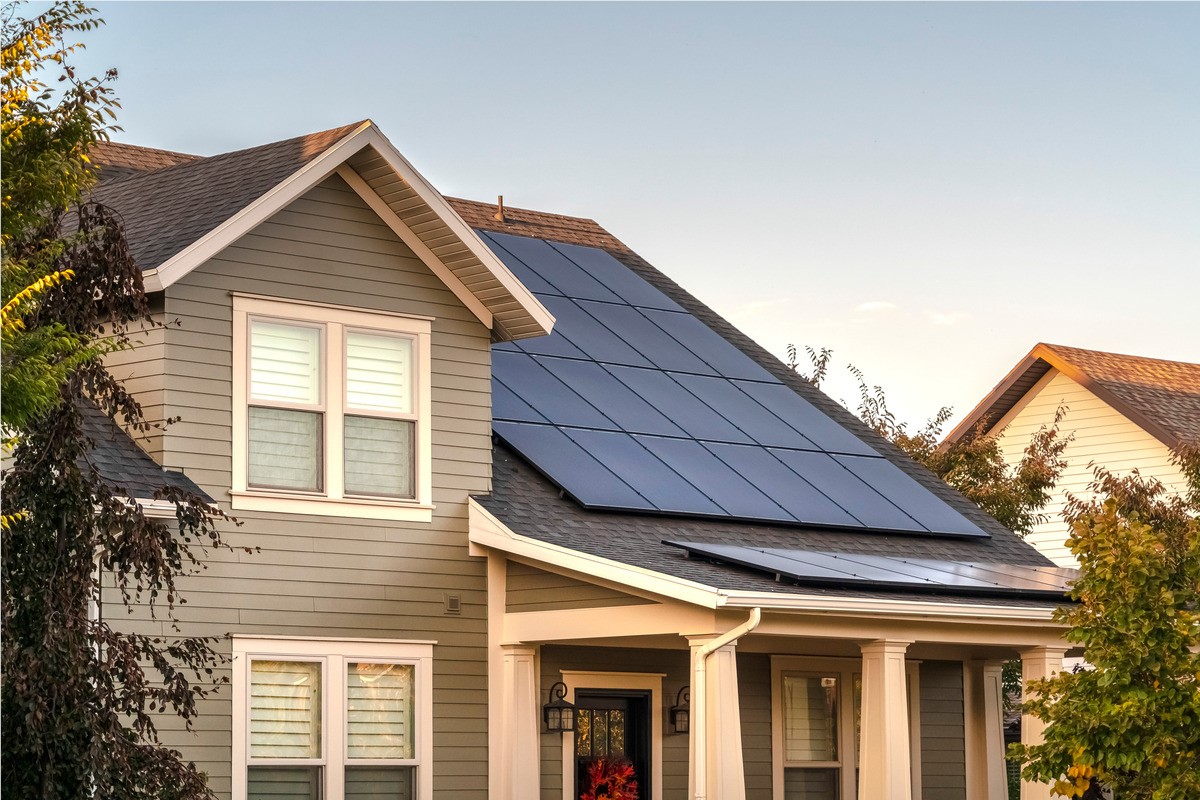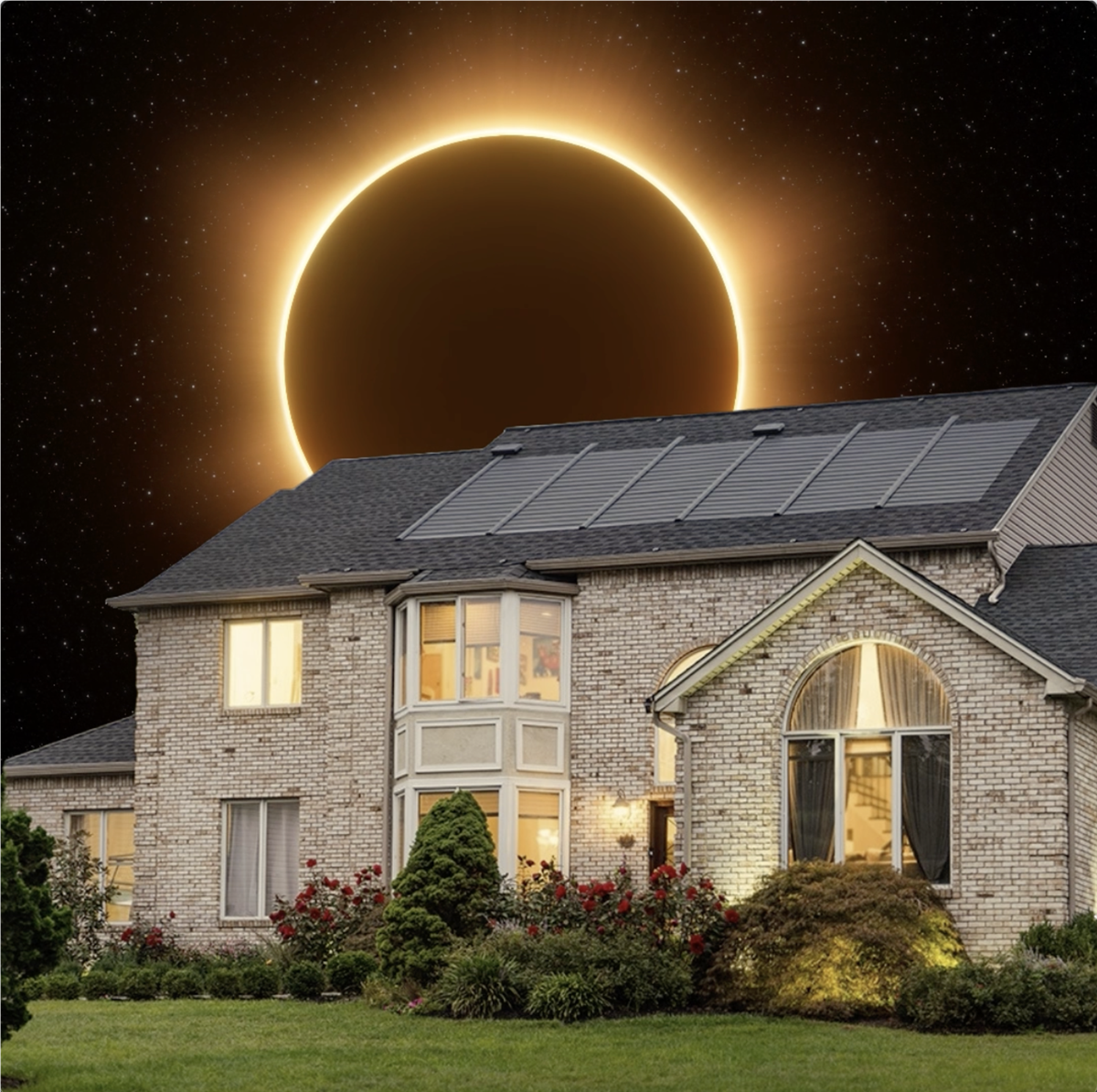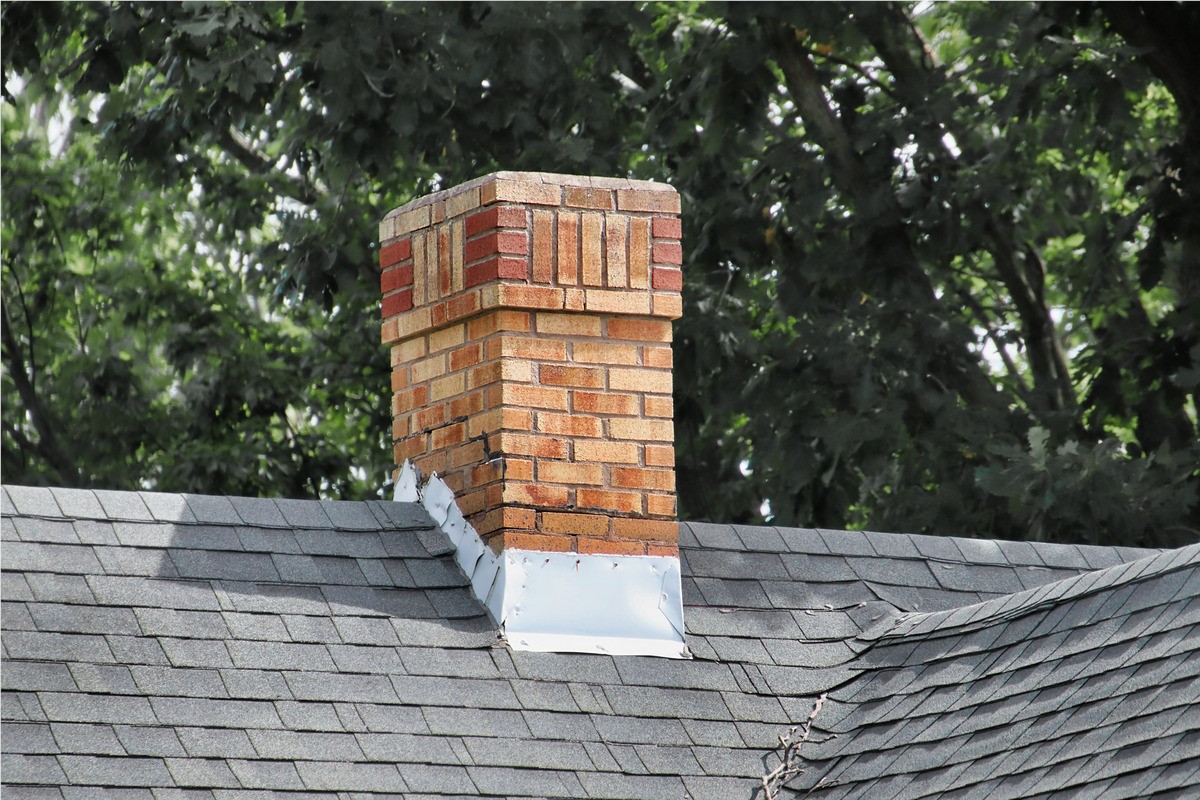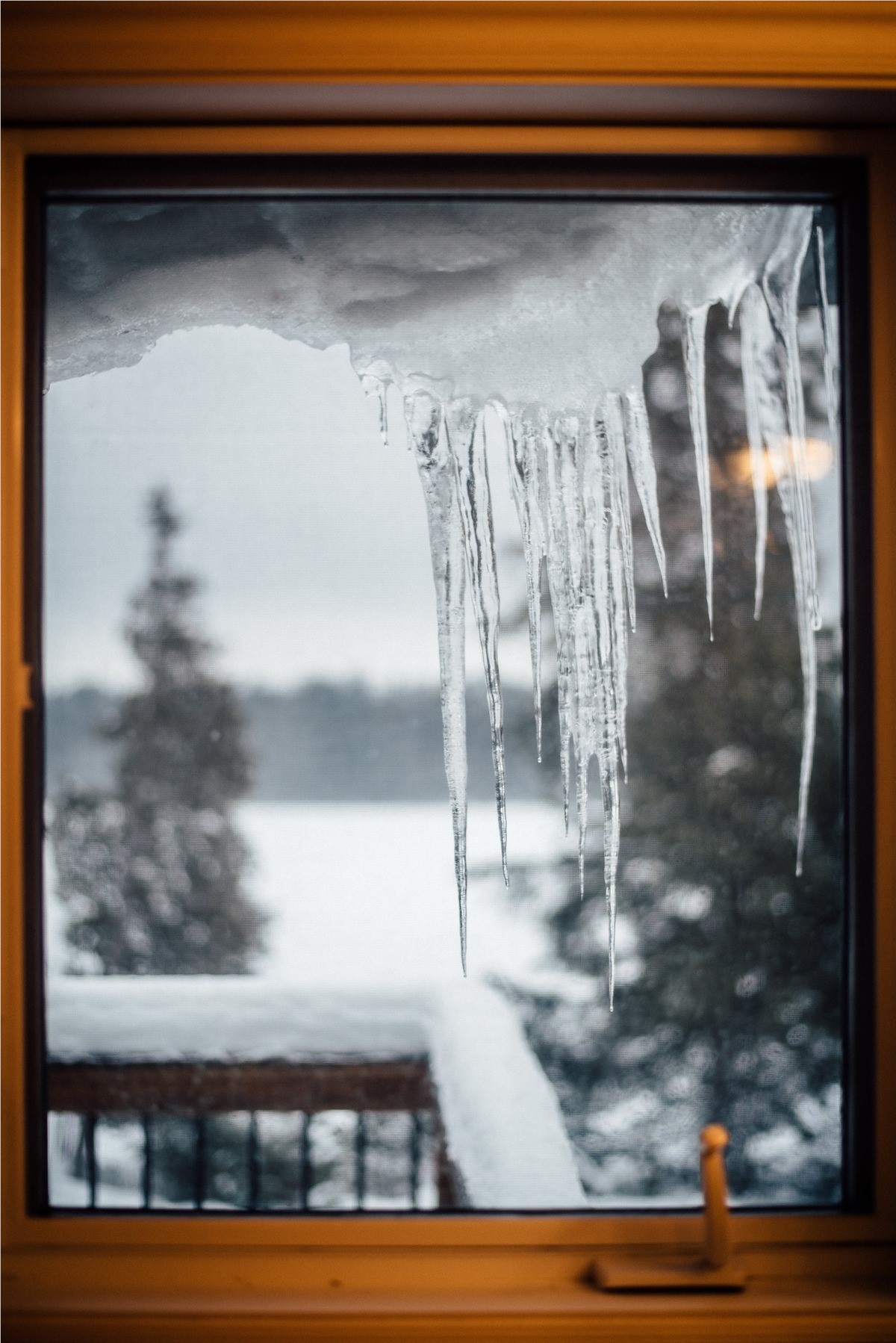
Getting solar panels installed is the ultimate conversation starter. Neighbors are curious about the system cost, how it works, does it work, how much money did you save on electricity bills, and more. There is a certain mystique about adding. them to your home because no one likes having to pay bills.
Additionally, solar energy systems have been in the news (and advertising) about the ease of installation and the use of federal tax credits. Frankly, there is not a better time than now if you’ve been thinking about upgrading your roof to a renewable energy source.
In this blog post, Shanco will walk you through if it is worth adding solar to your home in Virginia.
Facts About Solar Panels in Virginia
Solar requires sun and the more the better! While Virginia isn’t a sun-soaked state, Virginia hits the national average for sunlight at 205 days of sunlight per year. Late spring through late fall are good times for solar panels in Virginia.
Homeowners can count on at least 7 hours of sunlight throughout that time. June averages 10 hours of solar producing potential per day. That’s a solid 7-8 months of solar production to offset your summer air conditioning, pool pump, fans, and more.
It is true that winter months, when the sun isn’t as high in the sky, will yield less solar energy. For many of the states that have all 4 seasons, homeowners essentially shift from electric centric summers to natural gas or propane centric winters.
That said, nearly 60% of Virginia homeowners rely on electric heat pumps to heat their homes. Properly sizing a solar array to accommodate heat pump usage may be something to keep in mind during the winter months.
Virginia homeowners interested in solar need to be aware of the Federal Tax Credit. It’s a rebate that homeowners receive with their income tax after solar panel installation. It’s geared to entice homeowners to invest in green technology and help offset the cost of solar panels.
The full tax credit is available through 2032 and slowly starts to decline in the following years. Now is a great time to upgrade your roof and get a tax credit!
Finally, homeowners need to keep in mind that the cost of electricity is continuing to rise. Residential electric rates increased 20% between December 2021 and December 2022. Leveraging solar to offset the increased expenses of electric consumption may make sense as rates continue to rise.
Is Net Metering Offered in Virginia?
Net metering is available in Virginia. It allows homeowners to generate electricity via solar panels. Any excess, unused energy is sent back to the grid. The amount of electricity is purchased by the electric company and homeowners receive credit for their excess energy.
The credits are then used on days where energy usage exceeds generation, a cloudy overcast day for instance.
Do Solar Panels Require Battery Storage in Virginia?
There is the idea that solar panels will keep the power on during a power outage and that idea is false. Your electricity will go off during a power outage, however there are two products that can work in conjunction with solar panels to help ensure that the lights stay on.
First, homeowners can invest in a whole-house generator. Whole house generators operate on natural gas, propane, or gasoline. In some cases, a whole house generator will kick on within seconds of a power outage. You can own solar panels and have a whole house generator without any issue.
The second product is a solar battery storage system. These work like generators in that when the power goes out, the batteries kick in. Unlike a generator, the batteries have finite storage capabilities and if it runs empty, there isn’t any more to be had until it’s replenished. However, it is a great product to house all of the excess energy instead of utilizing net metering.
How you heat your home or if you drive an electric vehicle may make solar batteries a more interesting proposition. Stored excess energy could be used to help offset charging or heating expenditures. When consulting with a solar company, be sure to mention the heat pump and share an electric bill that shows monthly consumption so that energy usage is factored into the size of your solar array.
There are many pros and cons of solar battery storage systems.
Pros
Can store excess energy to use later
Gives homeowners energy independence
Not as loud as whole house generators
Cons
Emerging technology that is undergoing updates
Takes up space
Yearly maintenance
Costly up-front purchase
At the end of the day, a battery storage system may be the perfect fit for your Virginia home. However, it all depends on what goals you hope to achieve by adding solar to your home in the first place.
How Much Direct Sunlight Should Solar Panels Get?
Solar panels benefit from direct sunlight. The more the better. Your target should be 4-5 hours of direct sunlight a day. Preferably between the hours of 10 AM and 3PM. To achieve this amount of sun, homeowners may need to remove tree branches or remove trees or anything else casting shadows.
By nature, there will be days where 4-5 hours of direct sunlight just isn’t possible. Cloudy days will slow energy production. However, sunny days with the sun beaming down on your panels will provide plenty of solar energy harvesting opportunity.
Will Solar Panels Add Value to My Virginia Property?
Much like other home improvement services, adding solar panels will add value to your Virginia property. According to a study by the National Renewable Energy Laboratory, homes with solar panels gain $20 in value for every $1 saved on electricity. If your solar panels save you $500 a year, you can expect your home value to increase by $10,000.
Many younger home buyers are looking for homes outfitted with energy conscious features. These products make homes more marketable and are faster sellers on the market. The National Renewable Energy Laboratory has found that homes with solar sell 20% faster than homes without.
Zillow has discovered that homes with solar panels sell for 4% more than homes without.
Adding solar not only reduces your carbon footprint, but it also makes your home more marketable and adds value.
Types of Solar Panels in Virginia
A common thing that we hear at Shanco is about roof condition and concerns about replacing the roof and then adding solar. While that might have been a concern several years ago, technological innovations have made that concern moot. We have the perfect mix of products to outfit nearly any Virginia roof with solar panels
Solar Shingles- GAF Solar Shingles are a new product on the market. They provide homeowners with the option to replace their existing roof with shingles with solar panels built in. They carry two warranties; one as a solar panel and another as a shingle. These are the perfect fit for homeowners that need a new roof.
Rack Mount Solar Panels- You've probably seen rack mounted solar panels before. Rack systems are the most common residential solar system and have been around for decades. The racking system is built on top of an existing roof and requires homeowners to have a roof that is in good, stable condition.
Ground Mount Solar Panels- Is your roof not an option? Don’t sweat it! Ground mount solar panels are similar to rack mount except a pole system will be erected to house the panels in your yard.
Advantages of Solar Panels
There are many benefits of rooftop solar. Some of these benefits did not exist several years ago. There is a push for homeowners to slow fossil fuel consumption paired with heightened awareness about the benefits of solar. Some of the advantages of solar panels in Virginia include:
Tax Credit for Solar Panels- The Federal Tax Credit makes switching to solar panels easier than ever. The credit won’t be around forever. Take advantage today to save the most.
Increase in Virginia Property Value- Adding solar panels is a home improvement project that saves you money and increases your property value.
25 Years of Solar Energy Production- Solar panels have a shelf life of roughly 25 years. Run the numbers, with 205 sunny days per year in VA gives homeowners 5,125 days of energy efficiency savings in their homes.
Clean Energy to Power Your Home- Fossil fuel usage is expensive, and you can reduce your carbon footprint by switching to clean energy.
Energy Bills Continue to Rise- Electric bills in Virginia continue to rise. You can turn your roof into a clean energy generating tool to reduce your utility bills.
Are Solar Panels Worth Installing in Virginia?
After weighing technological improvements, tax credits, and benefits to your home, not to mention the ecological benefits, it is worth adding solar to your Virginia home. The team at Shanco is here to help with solar installation. We have offices that serve NOVA and Richmond areas. Give us a call today to get the process started.
Tags
Subscribe to Shanco's Blog





Comments